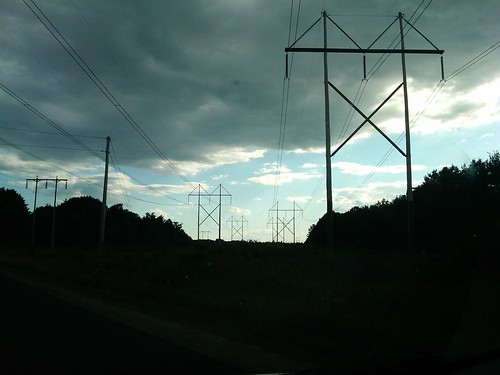
In California, the Alta Wind Energy Center — with plans for thousands of acres of turbines to generate electricity for 600,000 Southern California homes — officially broke ground yesterday. Here's the official project website, which is running a bit slowly today (likely due to all the interest in the project). Terra-Gen Power, LLC does have a slick website that is worth checking out. Some highlights include:
- The Alta Wind Energy Center (AWEC), under developed by Terra-Gen Power, is composed of multiple projects. The first AWEC development is the Alta-Oak Creek Mojave Project.
- The Alta-Oak Creek Mojave Project will be composed of up to 320 wind turbine generators and supporting infrastructure.
- The Project will be developed primarily on privately-owned land adjacent to existing wind energy developments in the Tehachapi area of California.
- The Project is projected to add 50 full-time jobs to the Kern County economy.
In enacting the smart grid bill, the Maine Legislature found that:
- The cost of electricity to consumers in this State is high in comparison to costs in similar markets and impedes economic development;
- The State has recognized the consequences of climate change and has committed to policies to reduce emissions of greenhouse gases;
- The State's electric grid and long-term infrastructure investment are vital to continued security and economic development, and smart grid functions will deliver electricity from suppliers to consumers using modern technology to increase reliability and reduce costs in a way that saves energy and to enable greater consumer choice;
- The State currently lacks a comprehensive smart grid policy but faces critical decisions regarding the implementation of smart grid functions and associated infrastructure, technology and applications, and the commission and the Legislature will play central roles in making those decisions; and
- It is vital that a smart grid policy be developed in order to ensure that all ratepayers and the State as a whole are afforded the benefits of smart grid functions and associated infrastructure, technology and applications.
With this policy in place, the ball is now in the court of smart grid infrastructure developers. We now have a law that will support roll-out of smart grid projects in Maine. Who will be the first to propose one?
A bit of personal news, related to energy: an article I co-authored with a colleague and a client has been published in Paper360 Magazine. Click through to read about how a pulp and paper mill navigates the waters of compliance with the Regional Greenhouse Gas Initiative (RGGI) and other climate change regulation.
How about PACE financing? PACE-promoting provisions got stripped out of the current Senate energy bill. These tweaks are viewed as necessary to let PACE programs flourish, as government-backed lenders Fannie Mae and Freddie Mac have suggested that they won't play with PACE.


No comments:
Post a Comment